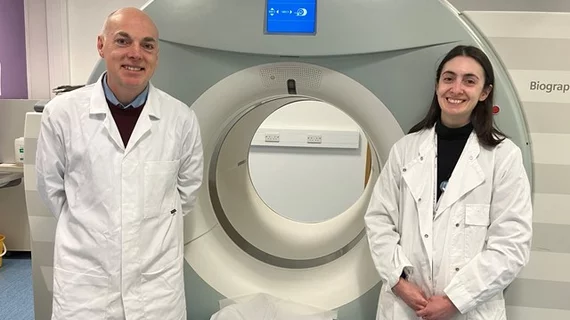New radiotracer could change how radiologists understand inflammation
A new radiotracer could change the way radiologists interpret inflammation on imaging.
Labeled as LW223, the fluorinated PET radiotracer is the first of its kind to be impervious to rs6971 polymorphism—a genetic mutation that inhibits the diagnostic view of inflammation imaging.
The mutation is found in approximately 60% of the human population; it makes the study of inflammation on imaging especially difficult because it prevents radiotracers from binding to human translocator proteins (TSPO), which are known markers of inflammation.
Developed by a team of researchers from the University of Edinburgh, the tracer has the potential to change the way inflammation is studied by offering clinicians insight into both what triggers and alleviates it.
Additionally, LW223 has a half-life of approximately two hours, making its transportation and utilization more commercially feasible in comparison to other radioactive elements.
“This LW223 radiotracer shows really strong potential to be able to scan all of the human population and examine inflammation inside organs like the heart or brain,” noted lead researcher Dr. Adriana Tavares, from the University of Edinburgh’s Center for Cardiovascular Science. “This will be extremely important for disease diagnosis, for understanding whether a treatment is working, and for drug development. Ultimately, it will save lives.”
Thus far, the radiotracer has been successfully tested in trials using human tissue. With new funding from the Medical Research Council’s Developmental Pathway Funding Scheme, the team will be working in conjunction with the University of Glasgow and industry partner Life Molecular Imaging (LMI) to advance their research by studying the radiotracer in healthy volunteers and in individuals who have suffered a heart attack to better understand its efficacy in imaging.
To learn more, click here.

